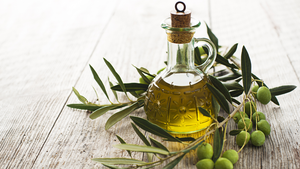.png?width=850&auto=webp&quality=95&format=jpg&disable=upscale)
Monster Beverage Corp. (NASDAQ: MNST) is entering the alcoholic beverage market through an agreement to acquire a craft beer and hard seltzer company, CANarchy Craft Brewery Collective LLC.
Through the $330 million acquisition announced Jan. 13th, Monster will pick up several brands in the alcoholic beverage market.
The brands include Cigar City (Jai Alai IPA and Florida Man IPA), Oskar Blues (Dale’s Pale Ale and Wild Basin Hard Seltzer), Deep Ellum (Dallas Blonde and Deep Ellum IPA), Perrin Brewing (Black Ale), Squatters (Hop Rising Double IPA and Juicy IPA) and Wasatch (Apricot Hefeweizen).
According to its website, CANarchy is one of the largest craft breweries in the U.S.— with seven distinct brands, seven manufacturing locations, 490,000 beer barrels shipped in 2020 and 18 pubs and taprooms.
The brewing company had $134 million in estimated 2021 net sales, according to an investor presentation by Monster on Jan. 13th, which described CANarchy as a “top 5 U.S. craft brewery” with distribution throughout the U.S. and 20 countries and U.S. territories.
Monster, whose energy drinks are distributed in 154 countries and territories around the world, said it expects the acquisition to close in the first calendar quarter of 2022, subject to customary closing conditions, including regulatory approvals. The deal excludes CANarchy’s stand-alone restaurants.
The acquisition won’t affect Monster’s organizational structure for its energy beverage business.
CANarchy, which has 566 employees, will operate independently.
“This transaction provides us with a springboard from which to enter the alcoholic beverage sector,” Monster’s Vice Chairman and Co-Chief Executive Officer Hilton Schlosberg said in a press release. “The acquisition will provide us with a fully in-place infrastructure, including people, distribution and licenses, along with alcoholic beverage development expertise and manufacturing capabilities in this industry.”
Reaction from Wall Street
In a note recommending a “buy” on Monster’s shares, Deutsche Bank Research said the acquisition should provide Monster with “starting-point infrastructure needed to compete in the beverage alcohol category over time, including manufacturing capabilities, licenses, distributor relationships, a selling organization and regional/national brands.”
Monster also disclosed its plans to launch a hard seltzer brand this year, according to the research note. Monster further suggested interest in competing in international markets and selling distilled spirts and ready-to-drink (RTD) cocktails, Cohen analysts wrote in equity research.
Deutsche Bank Research made similar observations and added, “despite an openness to alcohol innovation, [Monster] again does not intend to use existing brands and trademarks (including the Monster trademark) because the company is wary of upsetting the brand's image and position, not to mention potential regulatory scrutiny.”
Some analysts suggested Monster’s planned acquisition of CANarchy gives it more control but less scale than competitors like Coca-Cola that partnered with such giants as Constellation Brands and Molson Coors.
“We agree that retaining control of marketing and distribution will avoid conflict of interest in a hot market of RTDs, craft, functional and ‘near’ beer and will give more freedom for future M&A [mergers and acquisitions],” J.P. Morgan analysts wrote in an equity research note. “The flip side is that will likely take longer to reach critical mass.”
Challenges, including supply chain
Despite Monster’s diversification into the alcoholic beverage segment, Wall Street analysts cautioned the energy-drink giant continues to face challenges.
In an equity research note, Jefferies maintained a “hold” rating on Monster’s shares. Jefferies analysts cited, for example, “a less optimistic U.S. … sales growth outlook w/ further [market] share losses likely.” In the U.S., Monster’s energy drinks compete with such brands as Amp, Coca-Cola Energy, PepsiCo’s Rockstar, Red Bull and 5-Hour Energy Shots.
Monster hasn’t been immune from the supply chain challenges facing the broader U.S. economy. In its third-quarter earnings announcement in November, the company disclosed it was unable to “fully satisfy increased demand for its products” in the U.S. and EMEA (Europe, Middle East and Africa) due to such supply chain challenges as shortages of shipping containers, availability of trucks and delays in receiving particular ingredients.
Monster last year suffered several “challenges as a result of unanticipated increases in demand, which adversely impacted sales as well as operating costs and affected the availability of our products on shelves at retailers,” according to the company’s investor presentation.
Monster said it “has addressed and continues to address the controllable challenges in its supply chain, which remains largely intact.”
Shares of Monster closed Friday at $89.91, down nearly 5%.
About the Author(s)
You May Also Like






